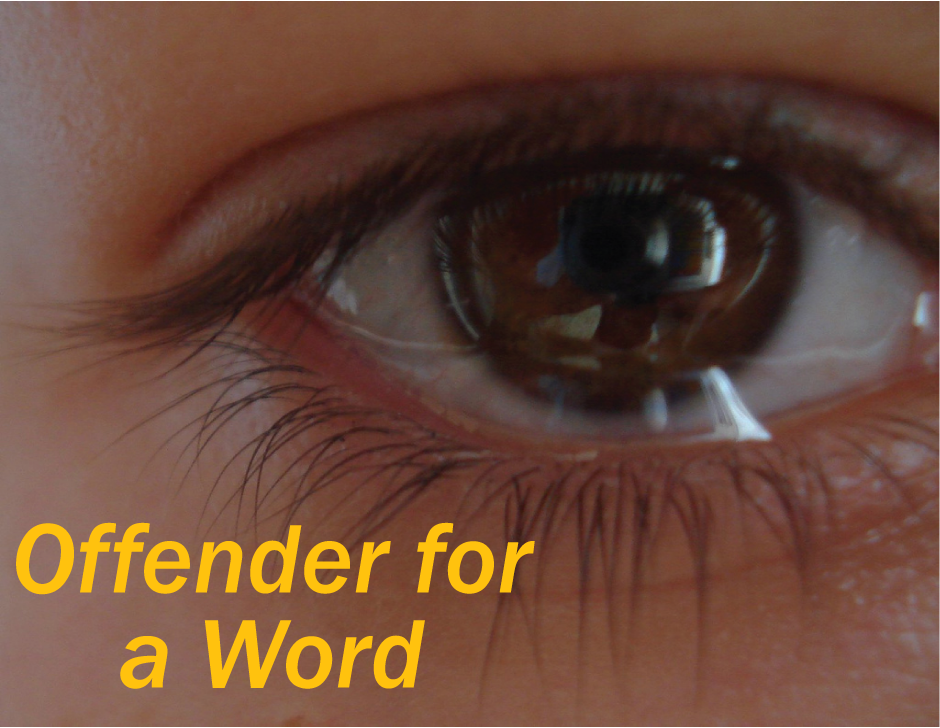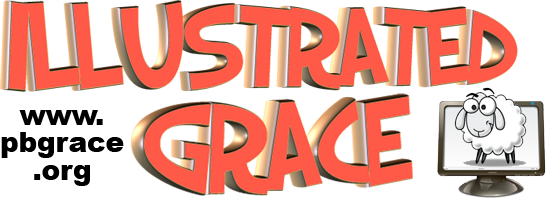
Sometimes a preacher will say something from the stand that offends one of God’s little children. There’s a verse in Isaiah 29 talking about being an offender for a word.
Isa:29:20: For the terrible one is brought to nought, and the scorner is consumed, and all that watch for iniquity are cut off:
Isa:29:21: That make a man an offender for a word, and lay a snare for him that reproveth in the gate, and turn aside the just for a thing of nought.
The only way I have ever heard this verse used, is out of context, and as a prelude to an apology. For example, you’ll often hear this: ” I don’t want to make a man an offender for a word, but” – then they’ll do exactly that. They’ll condemn a word or phrase that someone has used and then take them to task for it.
It’s probably a great misuse of that scripture, yet I’d like to continue that tradition and mis-use the phrase myself to make a point.
1Co:11:23: For I have received of the Lord that which also I delivered unto you, That the Lord Jesus the same night in which he was betrayed took bread:
1Co:11:24: And when he had given thanks, he brake it, and said, Take, eat: this is my body, which is broken for you: this do in remembrance of me.
1Co:11:25: After the same manner also he took the cup, when he had supped, saying, This cup is the new testament in my blood: this do ye, as oft as ye drink it, in remembrance of me.
1Co:11:26: For as often as ye eat this bread, and drink this cup, ye do shew the Lord's death till he come.
1Co:11:27: Wherefore whosoever shall eat this bread, and drink this cup of the Lord, unworthily, shall be guilty of the body and blood of the Lord.
1Co:11:28: But let a man examine himself, and so let him eat of that bread, and drink of that cup.
1Co:11:29: For he that eateth and drinketh unworthily, eateth and drinketh damnation to himself, not discerning the Lord's body.
1Co:11:30: For this cause many are weak and sickly among you, and many sleep.
1Co:11:31: For if we would judge ourselves, we should not be judged.
1Co:11:32: But when we are judged, we are chastened of the Lord, that we should not be condemned with the world.
I was reading the above verses and it brought me to tears remembering a situation I tried to help my mother through. She heard the verses in a sermon, but it was quoted incorrectly and she heard this:
29: For he that eateth and drinketh unworthy, eateth and drinketh damnation to himself, not discerning the Lord's body.
Let me be clear, because it’s important. No one is “worthy” to sit at this table and partake. But the verse isn’t talking about worthiness. The word used is “worthily.” My mother had become convinced that because she was not worthy to sit at that table and take of the Lord’s Supper, she was responsible for all the heartaches and difficulties she had in her life. One word. Two little letters causing great offense. She was sure the hard times and misfortune in this life that had befallen her was because she had eateth and drinketh damnation” to herself, taking communion “unworthy” and was not worthy to be counted among God’s elect saints. For her, the gospel was no longer good news, but a curse. (Before I forget, I should point out the difference: unworthily means taking the supper without reflecting upon the cost paid to allow one to be present there. Not discerning the Lord's body; treating the event as unimportant.)
This confusion took place in a church where you were expected to be at the Lord’s Supper or give the church explanation. I’ve heard of churches that will exclude you for missing two conferences in a row – how important is communion? Let me clarify something – my mother was a sound old Baptist – raised as such all her life, her mother also, and maybe her mother before her. Her family was in the church going back far enough to be Baptists before the name Primitive.
So clearly and historically, she was sound. She couldn’t have detailed for you the differences between justification by faith and of faith, but she was sound. She understood grace and knew salvation was of the Lord.
But a powerful preacher brought her offense at a word. Not intentionally of course. He misspoke, but it left a mark.
If you know these things, happy are ye if you do them. She knew them, she did them. Yet for several years, she wasn’t happy in them-- for several years, she dreaded communion. That’s a horrible position for any child of God.
Communion is something we need to be serious about. If you know me, you know I have a quick tongue and a sharp wit, but come communion time, I am serious to a fault. I am laser focused. I don’t joke, I don’t cut up, I am not asking someone about football or how their week was while I’m serving or waiting to be served. This is a memorial service of His death.
The rest of the time, we show forth His life, in ours, by the way we live, but in this, we are to remember his suffering, his pain, his sacrifice, his death. Communion is unique among old Baptists sermons in that we don’t often speak of the resurrection. It’s the memorial of His death.
Our attitude should be as important as the emblems we partake.
How important is this? We should be ever cautious not to offend a lamb or sheep of the fold.
If you are ever offended at a word, or fail to understand something, the time to clear up the matter is before it grows and causes harm. Ask the preacher. If he misspoke, (he's human, it happens) he’ll thank you for the opportunity to clarify. I beg you to never depart the assembly feeling like you haven’t got rest from your burdens, and you haven’t been comforted by the master or you haven’t communed with God.
By the way – mom came to understand the wording used and again enjoyed the communion of the saints in the way the Lord intended.
|
|

